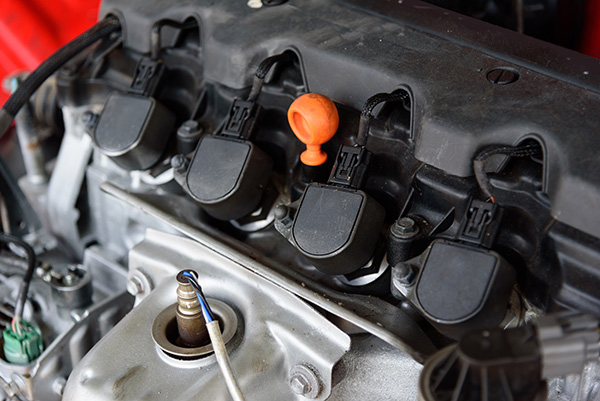
We've all been there. You turn the key in the ignition, and instead of your engine roaring to life, you're met with a frustrating silence or a few sputters. Ignition problems can be a real headache, but understanding the common issues and how to fix them can save you time, money, and stress. Let's see what might be going wrong under your hood.
Battery Issues
One of the most common causes of ignition problems is a faulty or drained battery. If your engine isn't turning over, check your battery first.
A completely dead battery will prevent your car from starting altogether. You might hear a clicking noise, or nothing at all when you turn the key. If you have a multimeter, you can test the voltage. A healthy battery should read around 12.6 volts.
Sometimes, the issue isn't the battery itself but the connection. Corrosion on battery terminals can impede the flow of electricity. Cleaning the terminals with a mixture of baking soda and water can often solve this problem. Ensure the battery cables are tightly connected to the battery terminals. Loose connections can cause intermittent power issues that make it seem like your battery is dead.
Faulty Ignition Switch
The ignition switch is another critical component that can cause starting problems. It's responsible for sending power from the battery to the starter motor and other electrical components. Over time, the ignition switch can wear out and fail to make proper electrical contact. Symptoms include difficulty turning the key, the car stalling shortly after starting, or no response at all when turning the key.
If the wiring connected to the ignition switch is damaged, it can prevent the proper flow of electricity. Inspecting the wiring for any visible damage and ensuring connections are secure can sometimes resolve the issue.
Starter Motor Problems
The next suspect is the starter motor if your battery and ignition switch are in good shape. The starter motor is responsible for turning the engine over when you start your car.
The solenoid is a small component attached to the starter motor. It can fail independently of the motor, preventing your car from starting. Listen for a clicking sound when you turn the key. If you hear it, the solenoid might be the issue.
If the starter motor is worn out, it won't be able to turn the engine over. This often manifests as a grinding noise or complete silence when you turn the key. Replacing the starter motor is usually necessary in this case.
Spark Plug Issues
Spark plugs are crucial for igniting the fuel-air mixture in your engine. If they aren't functioning correctly, your car won't start. Over time, spark plugs can wear out and fail to produce the necessary spark. This is usually evident if your car has trouble starting or runs rough. Replacing the spark plugs regularly as part of routine maintenance can prevent this issue.
If the spark plugs are covered in oil, fuel, or carbon deposits, they won't function properly. Cleaning or replacing fouled spark plugs can often resolve starting issues.
Fuel System Problems
Your car needs a proper fuel supply to start and run. Issues with the fuel system can also prevent your car from starting. It might seem obvious, but sometimes, the simplest explanation is the correct one. Check to ensure you have enough fuel in the tank.
The fuel pump delivers fuel from the tank to the engine. If the pump fails, the engine won't get the fuel it needs to start. Symptoms of a failing fuel pump include a whining noise from the fuel tank and difficulty starting the car.
A clogged fuel filter can restrict the flow of fuel to the engine. Replacing the fuel filter regularly can prevent this issue.
Don't let ignition problems ruin your day. Bring your vehicle to Roesbery Car Care Walnut Creek for expert diagnosis and repair services!